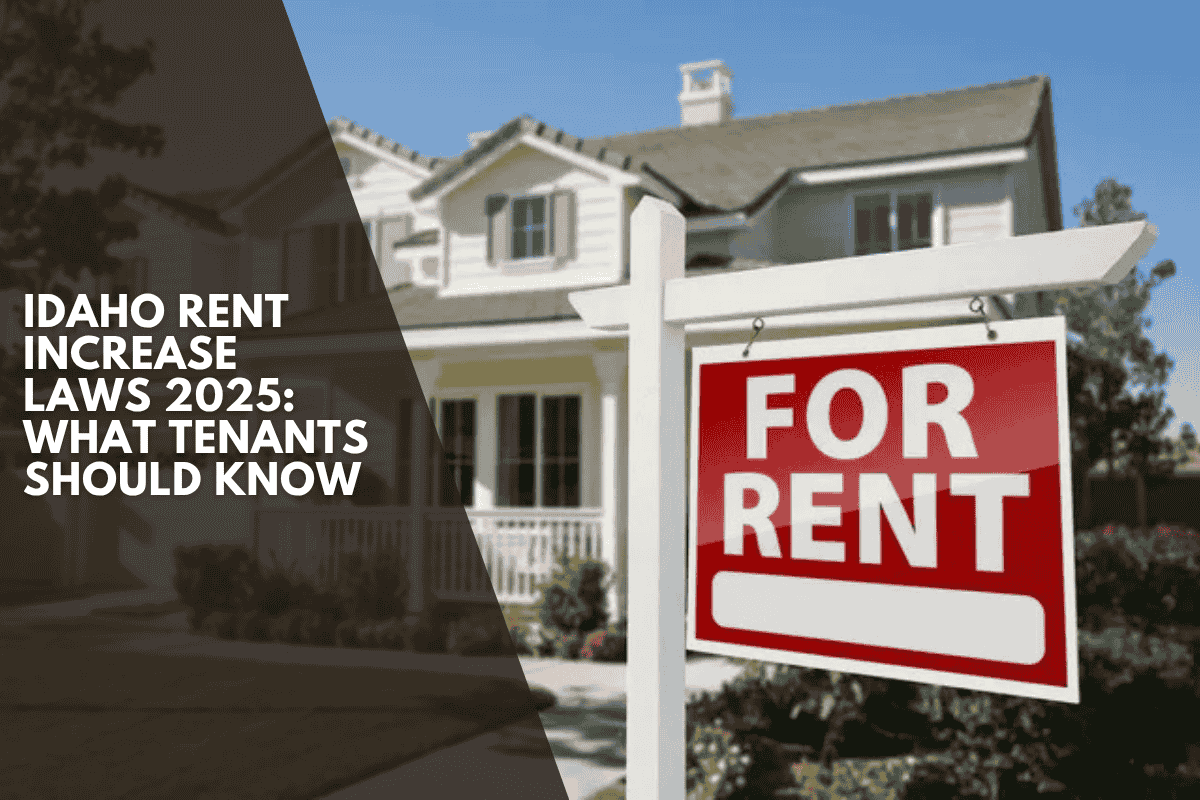No Statewide Rent Control
Idaho remains one of the most landlord-friendly states in the country, and as of 2025, there is no statewide rent control. This means landlords can raise rent by any amount they choose, as long as they follow the legal notice requirements and do not violate anti-discrimination or anti-retaliation laws. There are no legal caps or limits on how much a landlord can increase the rent for most rental properties in Idaho.
Notice Requirements for Rent Increases
For month-to-month leases, Idaho law requires landlords to provide at least 30 days’ written notice before a rent increase takes effect. This notice must be delivered in writing, and the new rent cannot be charged until the 30-day period has expired.
For fixed-term leases (such as a one-year lease), landlords cannot raise the rent until the lease ends, unless the lease agreement specifically allows for a mid-term increase. If a tenant is offered a renewal with a rent increase, the landlord must also provide at least 30 days’ written notice before the new lease term begins.
No Local Rent Control Ordinances
As of July 1, 2025, Idaho law (Senate Bill 1043) prohibits local governments from enacting rent control ordinances. This means cities and counties cannot pass their own rules to limit rent increases on private residential properties. The only exceptions are a few existing ordinances in places like Boise, which apply to certain affordable housing units and tie increases to the Consumer Price Index—but these are rare and only affect a small subset of rentals.
Anti-Discrimination and Retaliation Protections
While landlords have broad authority to raise rents, they cannot increase rent for discriminatory or retaliatory reasons. For example, it is illegal to raise rent in response to a tenant’s complaint about code violations or because of a tenant’s race, religion, gender, or family status. These protections are enforced under the federal Fair Housing Act and Idaho’s own tenant protection laws.
Lease Terms and Other Fees
Rent increases must comply with the terms of the lease agreement. If the lease specifies how and when rent can be increased, both parties must follow those terms. There is no statutory limit on late fees, application fees, or security deposits, though some new laws in 2025 are beginning to limit excessive application fees in certain situations.
Key Takeaways
No statewide cap on rent increases for most Idaho rentals.
30 days’ written notice is required for rent increases on month-to-month leases.
No rent increases during a fixed-term lease unless the lease allows it.
Local governments cannot enact rent control on private rentals.
Rent increases cannot be discriminatory or retaliatory.
Lease terms may further regulate when and how rent can be raised.
Tenants should always review their lease agreements and ensure they receive proper written notice before any rent increase takes effect. If you believe a rent increase is discriminatory or retaliatory, you can file a complaint with the Idaho Attorney General’s office or seek legal advice.
Sources
[1] https://www.hemlane.com/resources/idaho-rent-control-laws/
[2] https://www.steadily.com/blog/how-much-can-a-landlord-raise-rent-in-idaho
[3] https://innago.com/idaho-landlord-tenant-laws/
[4] https://www.steadily.com/blog/rent-increase-laws-regulations-idaho
[5] https://www.wave-property.com/blog/2025-idaho-landlord-law-updates-whats-happening-this-year-in-boise











